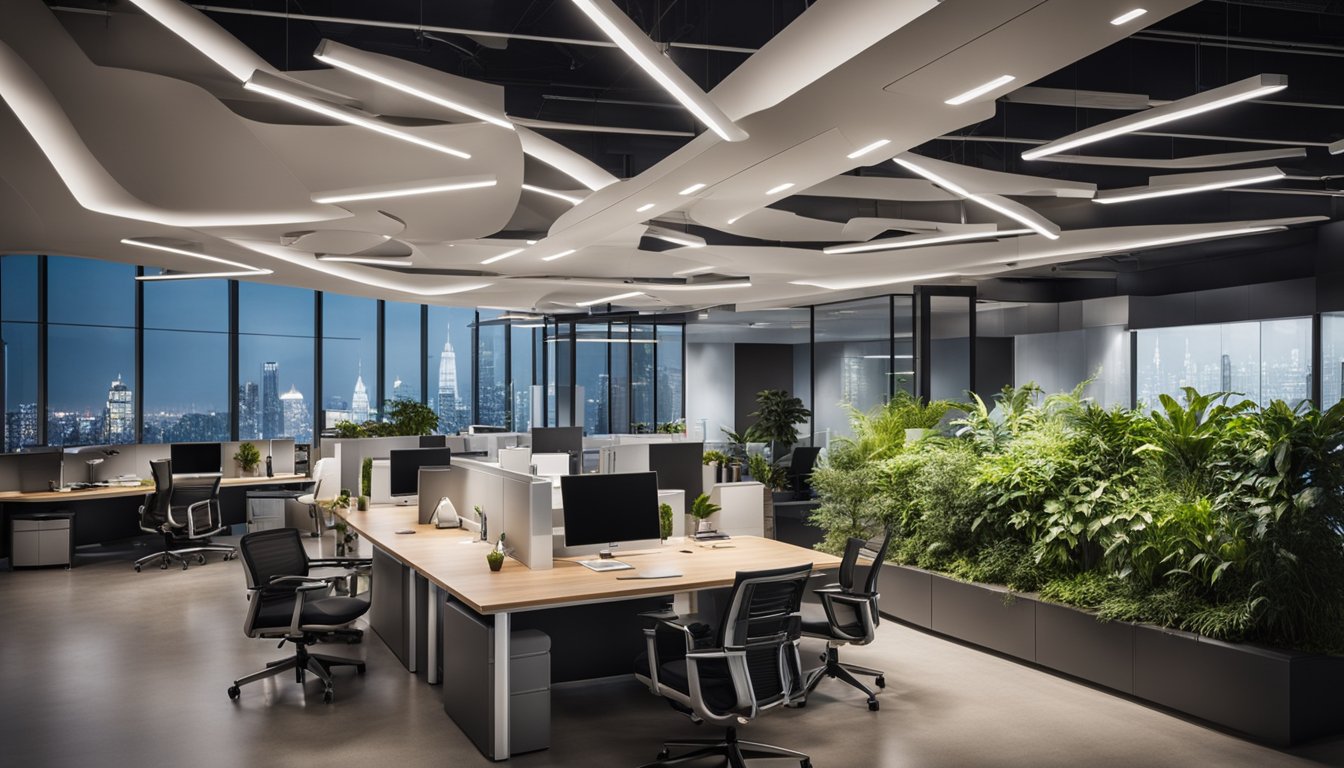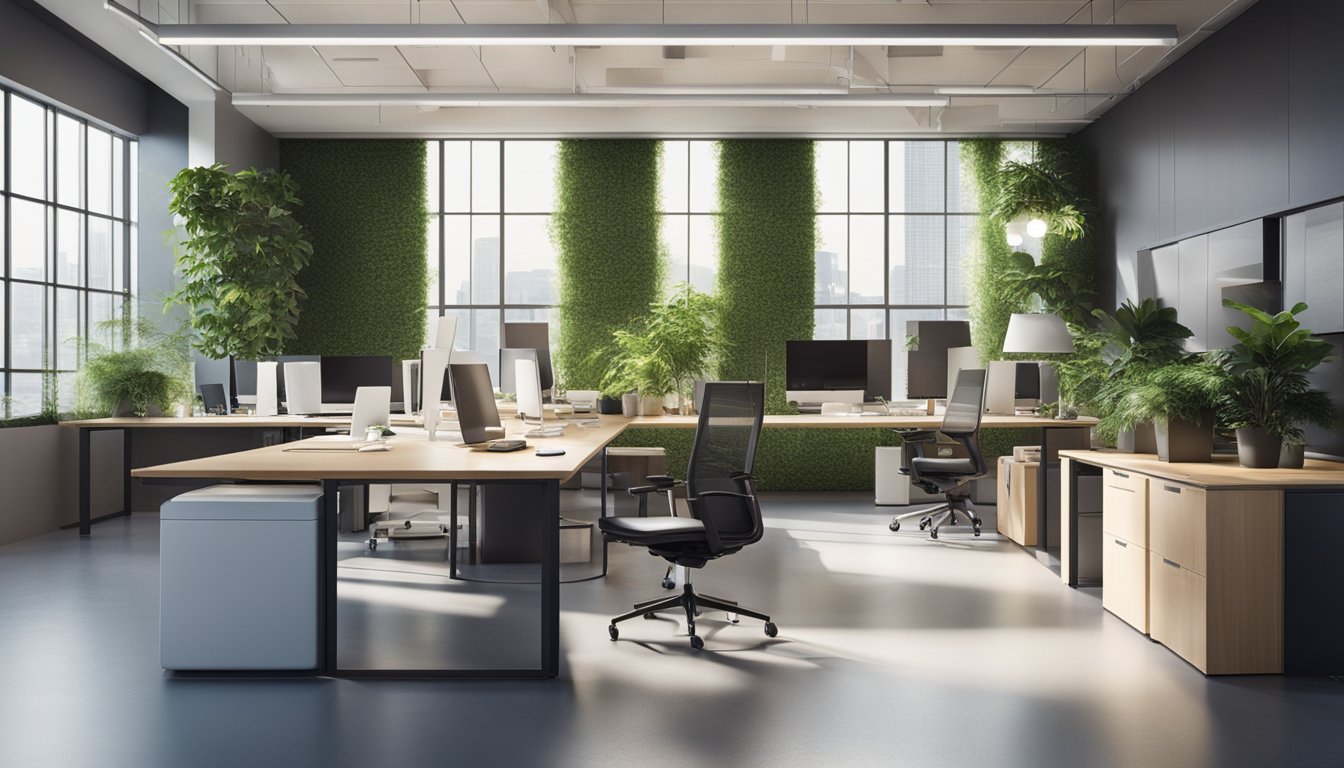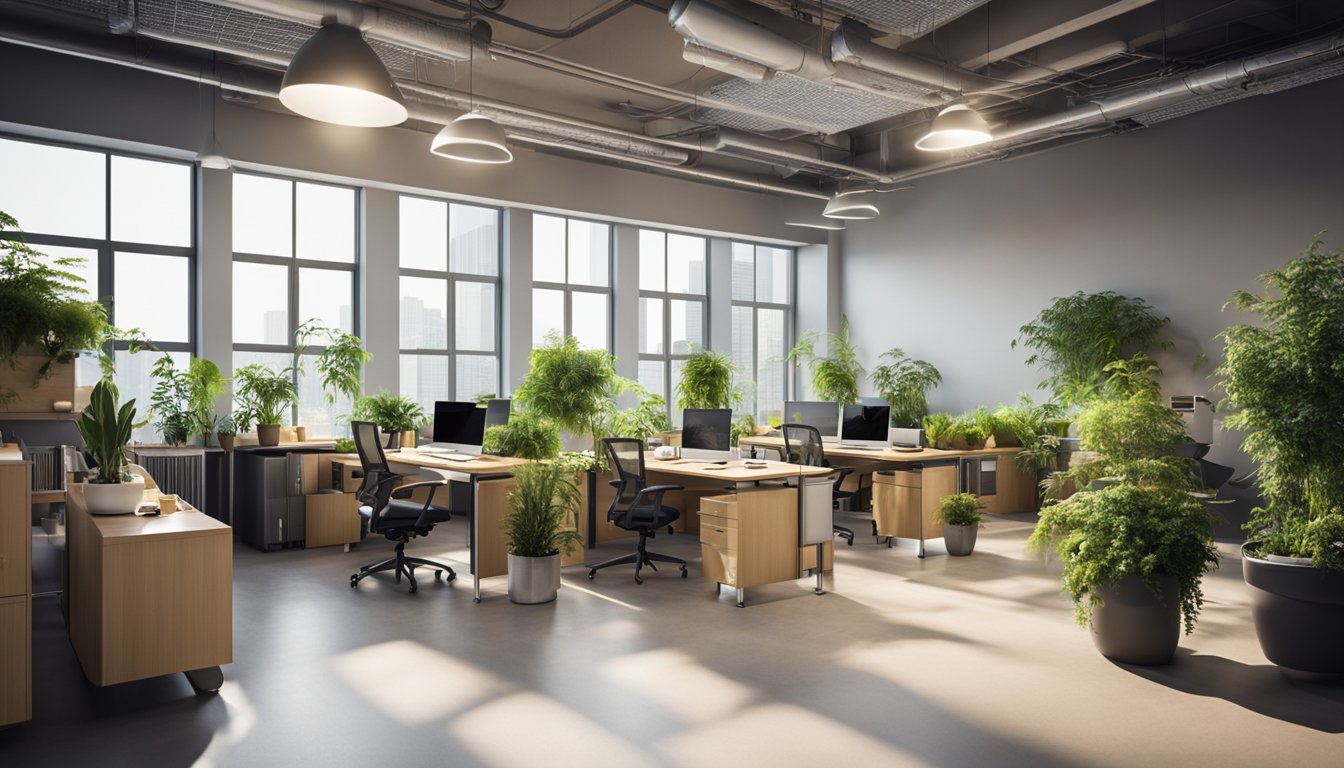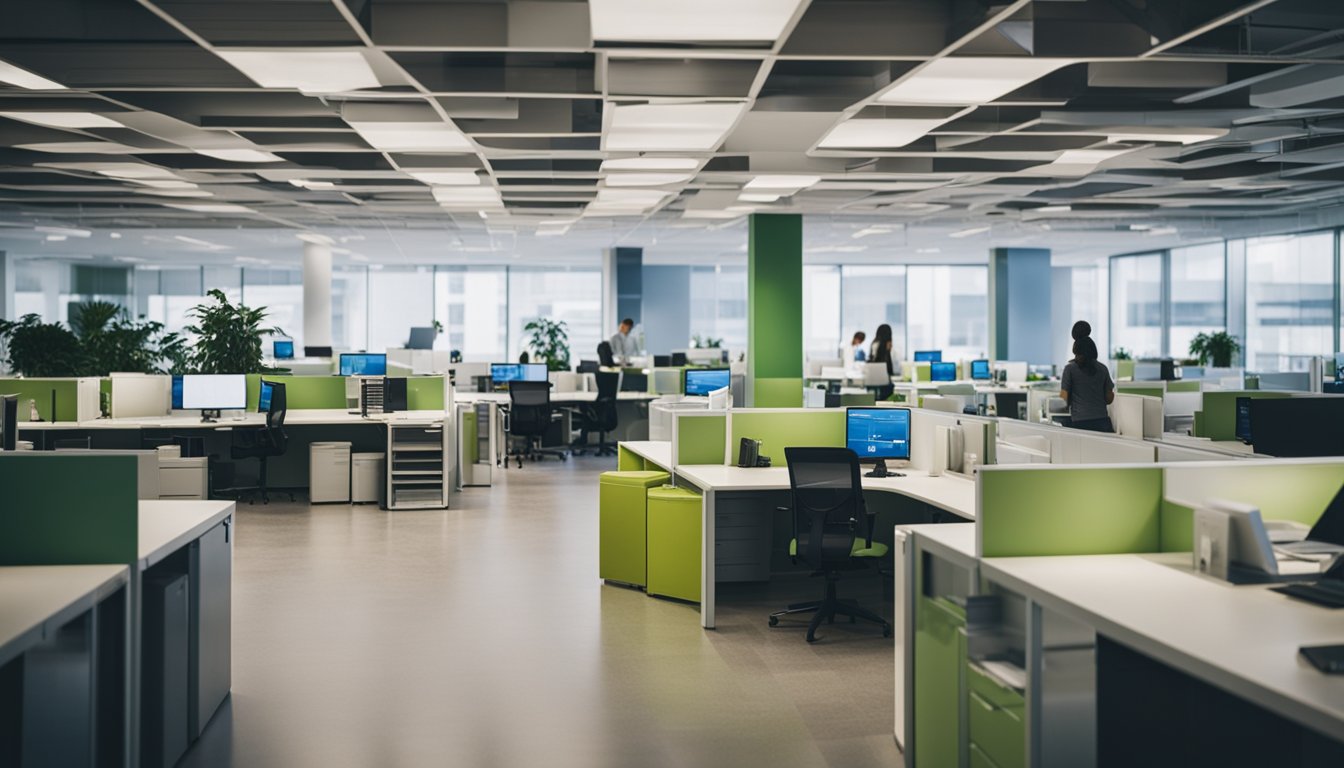Late updated: 06 Dec 2024 09:12
Written by: Amber Collins
Sustainable Office Solutions For UK Startups: Creating Eco-Friendly Workspaces
In today's rapidly evolving business landscape, the focus on sustainability is more important than ever, especially for UK startups looking to make a mark. As these companies strive to integrate sustainable practices within their operations, one primary area of focus is the office environment. By implementing sustainable office solutions, startups not only reduce their carbon footprint but also engage in ethical responsibilities that appeal to stakeholders and customers alike.

Sustainable office solutions encompass a wide range of initiatives, from the use of eco-friendly materials to energy-efficient technologies. By adopting these practices, startups can significantly reduce operational costs while enhancing the workplace environment for their employees. This dual advantage of cost efficiency and improved morale makes sustainability a practical choice for young companies aiming to maximise both innovation and financial health.
Our exploration into sustainable office practices aims to equip you with insights and strategies that align environmental goals with business objectives. Let’s dive into the specifics of how these principles can be woven into the fabric of your startup's operations, setting a foundation for long-term success.
Key Takeaways
- Sustainable practices in offices enhance cost efficiency.
- Eco-friendly solutions bolster workplace morale.
- Sustainability aligns with business growth objectives.
Implementing Sustainable Practices

Our focus on sustainable practices in office environments aims to reduce carbon emissions, enhance energy efficiency, and promote eco-friendly approaches. These efforts include utilising renewable energy sources, investing in sustainable materials, and fostering innovation in sustainability.
Energy Efficiency and Sustainable Energy
We recognise the importance of energy efficiency in reducing our carbon footprint. Upgrading to energy-efficient lighting like LEDs and installing smart HVAC systems can dramatically cut energy consumption. Additionally, embracing renewable energy solutions such as solar panels or wind turbines empowers us to utilise cleaner energy sources.
Implementing such measures not only aids climate action but also reduces operational costs over time. Energy audits should be conducted regularly to identify areas for further improvement. These efforts align with our commitment to environmental responsibility and play a pivotal role in our sustainability agenda.
Sustainable Materials and Recycling
Using sustainable materials is crucial in building eco-friendly workspaces. We advocate for the adoption of biodegradable and sustainable packaging options, particularly in sectors heavily reliant on materials such as agritech and biotech. Integrating products made from sustainable bamboo contributes significantly to lowering our environmental impact.
In parallel, a robust recycling programme, including plastic recycling initiatives, is essential. We should ensure that our offices are equipped with appropriate bins and employee training to maximise recycling efforts. Attention to sustainable sourcing and eco-friendly materials boosts our dedication to responsible resource use and environmental processes.
Innovations in Sustainability
Our commitment to sustainability is further strengthened through innovation. Collaborating with innovative startups that specialise in renewable energy projects and other sustainable technologies can offer us cutting-edge solutions for our office practices. Agritech innovations, for instance, can provide insights into sustainable food sourcing within office spaces.
Biotech firms contribute by developing environmentally friendly materials and supplies, advancing our sustainable office practices. Staying informed about the latest developments and technologies enables us to adopt new, effective methods for reducing our carbon emissions. This dynamic approach ensures we remain leaders in implementing sustainable office solutions while supporting climate action initiatives.
Sustainability in Business Operations

Incorporating sustainability into business operations addresses critical areas like finance, workplace culture, and office design. Each aspect plays a vital role in fostering a sustainable future and aligning with environmental responsibility.
Green Finance and Sustainability Screening
Green finance is pivotal for startups aiming to reduce carbon footprints. Utilising green bonds and sustainable banking products can guide our financial strategies towards sustainability. Screening for environmental impacts should be a routine part of investment analysis, ensuring our ventures support a low carbon economy.
Collaboration with verified sustainable products providers helps to align procurement with the principles of a circular economy. It is crucial that our financial decisions reflect our commitment to mitigating the climate crisis. This approach not only enhances our reputation but also attracts eco-conscious investors.
Building a Culture of Sustainability
A sustainable business culture starts with committed leadership and widespread collaboration among team members. Founders must prioritise sustainability by embedding it into our company's core values. Encouraging creativity, we foster an environment where employees suggest eco-friendly practices.
Creating awareness about climate change and promoting sustainable horticulture can engage our team emotionally. We should offer training focused on energy-efficient technologies and sustainable solutions, empowering employees to be advocates of environmental responsibility. This cultural shift can significantly contribute to our holistic sustainable development goals.
Eco-Friendly Office Solutions
Designing eco-friendly offices is essential for minimising our environmental impact. Incorporating LEED guidelines, such as energy-efficient technologies and sustainable materials like bamboo, supports our commitment to a low carbon economy. It's important to procure furniture and supplies verified as sustainable.
Additionally, sustainable office practices include minimising waste, optimising natural light, and ensuring recycling facilities are accessible. Transitioning to energy-efficient lighting solutions and smart HVAC systems can reduce operational costs and our carbon footprint. These choices reflect our dedication to sustainable office solutions, paving the path towards a greener office environment.
Frequently Asked Questions

Incorporating sustainable practices in office environments is essential for UK startups aiming to reduce their environmental impact. By focusing on responsible furniture choices and eco-friendly solutions, businesses can enhance their sustainability profile.
What are the best practices for reducing carbon footprint with office furniture?
Selecting furniture made from renewable sources or recycled materials is key. Additionally, opting for durable and multifunctional pieces can help extend their lifecycle, thus minimising waste. When possible, choose local suppliers to decrease transportation emissions.
How can startups find quality refurbished office furniture in the UK?
Finding reputable suppliers specialising in refurbished office furniture is vital. These suppliers often offer a range of high-quality items that have been restored or repurposed, providing an eco-friendly and cost-effective option for startups. Online marketplaces and local warehouse sales can also be excellent sources.
What should be considered when choosing eco-friendly office chairs?
Look for chairs made from sustainable materials, such as wood with FSC certification or recycled fabrics. Ergonomic design is crucial for employee comfort and productivity, ensuring that the chairs are not only environmentally friendly but also supportive.
What options are available for obtaining sustainable office furniture at a lower cost?
Startups can explore leasing options, which reduce upfront costs and often include maintenance services. Purchasing second-hand or refurbished items is another cost-effective route. Engaging with community exchange programmes can provide free or low-cost furniture through swaps or donations.
How does recycled office furniture contribute to a greener office environment?
Recycled furniture reduces the demand for new resources, thereby lowering environmental impact. It helps cut down on waste sent to landfills and often uses less energy in production compared to new items. By choosing recycled options, startups can support a circular economy.
What policies can startups implement to maintain sustainability in office solutions?
Startups should consider implementing a comprehensive sustainability policy that includes procurement guidelines prioritising eco-friendly products. Regular audits and employee training sessions can ensure these practices are adhered to and continuously improved. Engaging employees in green initiatives and sustainability goals boosts participation and awareness.
